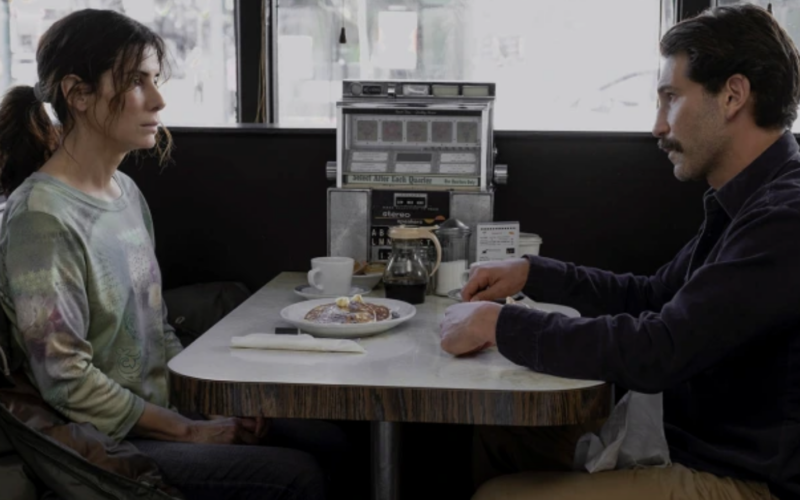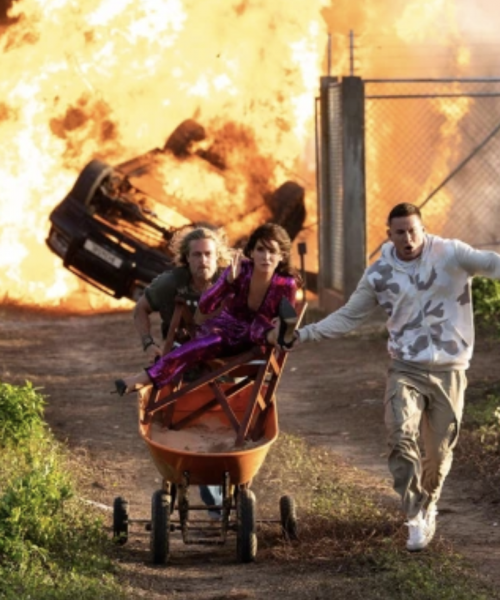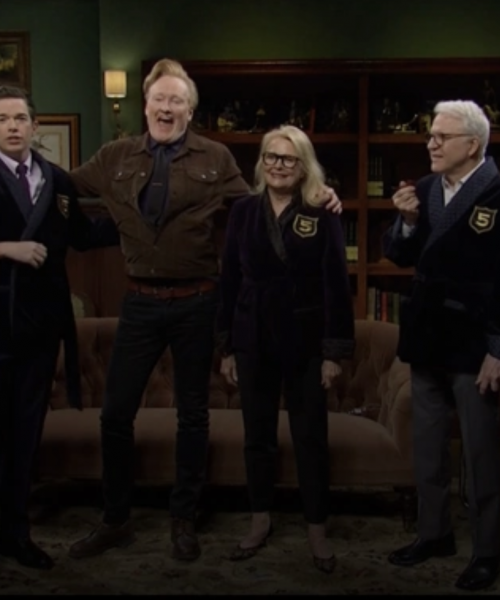BY DAVID ROONE | HollywoodReporter.Com
Troy Warren for CNT #Entertainment
Vincent D’Onofrio, Viola Davis, Jon Bernthal and Rob Morgan also star in this redemption drama about a damaged woman navigating her freedom after 20 years in prison.
A strong cast and tightly focused direction make The Unforgivable an engrossing enough redemption drama, though this Americanized feature adaptation of British TV writer Sally Wainwright’s 2009 miniseries, Unforgiven, doesn’t always benefit from its condensed plotting. A deglammed Sandra Bullock headlines as Ruth Slater, an ex-con attempting to find a quiet place in the free world, who wants only to reconnect with her younger sister after serving 20 years for a violent crime. Following her Berlinale prize winner System Crasher, German director Nora Fingscheidt makes a respectable English-language debut with this somber look at the ripple effects of trauma.
Bullock’s star power, plus an overqualified supporting cast that includes Viola Davis and Jon Bernthal, should draw eyes to this Netflix original, opening in limited theaters ahead of its Dec. 10 streaming premiere. Screenwriters Peter Craig, Hillary Seitz and Courtenay Miles shift the story from Yorkshire to Seattle, providing a cold, rainy climate to match the film’s somewhat dour mood, which makes way for a glimmer of hope only at the very end.

Ruth’s parole officer, Vince Cross (Rob Morgan), informs her that she’s prohibited from associating with known felons or from seeking contact with the victim’s family. But they instantly come looking for her, when hothead Keith Whelan (Tom Guiry) and his calmer, more reasonable younger brother Steve (Will Pullen) get word of Ruth’s early release for good behavior.
The nature of Ruth’s crime is revealed in fragments, but it becomes apparent early on that she shot and killed the Whelan brothers’ father, a sheriff attempting to evict her from the family farmhouse in Snohomish County and place her 5-year-old sister, Katherine (Neli Kastrinos), in the social-services system following their father’s suicide. The contempt in the faces of prison guards and Seattle patrolmen says plenty, even before the anonymous phone calls whispering “Cop killer” start at the Chinatown halfway house for previously incarcerated women where Vince installs Ruth.
Beneath her toughened shell, Ruth remains troubled by flashes of the past. But Keith sees it as an affront that she’s back out in the world living her life while his blue-collar family continues to suffer; his mother has progressed from alcoholism to chronic illness and their financial situation is dire. Steve, who has a young family of his own, urges his brother to leave it alone and move on.
Meanwhile, Katherine (Aisling Franciosi), who has grown up in the suburbs with middle-class adoptive parents Michael (Richard Thomas) and Rachel Malcolm (Linda Emond), is distracted while driving and has a car accident the same day Ruth is released. While her injuries are relatively minor, Michael and Rachel worry that the events are somehow connected, even though Katie’s splintered memories of her early years are vague at best. Only the Malcolms’ biological daughter Emily (Emma Nelson) knows that Katie, who has a history of instability, has stopped taking her meds.
Further expanding the screenplay’s family spectrum is the well-heeled Ingrams — lawyers John (Vincent D’Onofrio) and Liz (Davis) and their two mixed-race sons. They live in the immaculately renovated farmhouse where Sheriff Whelan was killed. Ruth turns up there to see her childhood home, fudging her connection to the place when John invites her in. He responds to her obvious distress and offers legal help locating her estranged sister.
This doesn’t go over well with Liz when the full story about Ruth surfaces. In a role that otherwise underutilizes her talents, Davis lets her indignation rip as she points out to John that their Black sons would not have survived 20 years in the system with the tag “cop killer” hanging over their heads.
Fingscheidt and DP Guillermo Navarro keep the color palette muted, with the camerawork becoming agitated and claustrophobic whenever Ruth is seen moving apprehensively through a world both unfamiliar and hostile to her. She’s a hard worker, applying her carpentry skills to the construction of a homeless shelter and laboring on the processing line at a seafood packing plant. It’s there that co-worker Blake (Bernthal) makes gentle overtures of friendship, which she rebuffs at first, before slowly beginning to drop her guard and allow the first signs of a tentative romance.
Bullock makes few concessions to soften Ruth, neither in her drab appearance nor her emotionally closed-off manner. But she conveys the sadness of two decades of isolation and determined self-preservation, inviting sympathy for Ruth’s yearning to be reunited with the much younger sister she practically raised in the latter’s first five years. There’s tension in her encounter with the protective Malcolms, who question what good it could possibly do Katie to reestablish contact with someone she’s forgotten and stir up buried pain.
In the climactic developments, the plotting becomes rushed. One major issue is the abrupt transformation of Steve into a vengeful, angry man when he’s been so carefully set up as the rational brother. A betrayal by deadbeat Keith and a brief encounter with Ruth don’t quite justify his about-face. A mix-up involving Katie’s sister Emily helps fuel suspense in the final stretch, though a late revelation concerning the crime that sent Ruth to prison stretches credibility. Even so, the mostly character-driven action is consistently involving, and the ending, while a touch too mechanical, is affecting.
The biggest hurdle facing The Unforgivable is that we’ve seen more effective versions of downbeat stories like this before. Bullock’s performance doesn’t come close, for instance, to the punishing psychological exploration of Kristin Scott Thomas as a woman struggling to readjust to society after 15 years’ incarceration in the haunting 2008 French drama I’ve Loved You So Long. And the forensic detailing of character, crime and milieu in limited series like Mare of Easttown has significantly raised the bar in recent years.
That bar was already set high with Wainwright’s original 3-part mini, which, like her superb later success, Happy Valley, benefited from its gritty, enveloping sense of place, taut pacing and empathetic grasp of complex characters. The rights to Unforgiven were acquired by producer Graham King in 2010, with Christopher McQuarrie initially slated to pen the adaptation as a vehicle for Angelina Jolie. This version is certainly watchable, but after a decade in development, it sometimes feels as fatigued as Ruth.
In Other NEWS



































